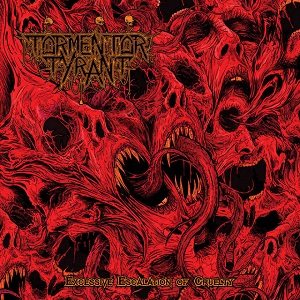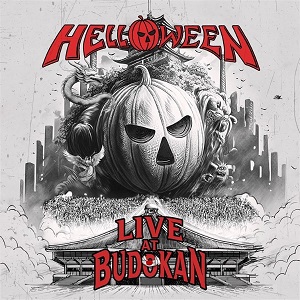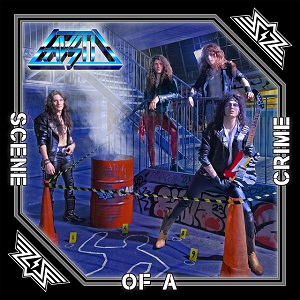KING DIAMOND Talks About The Magic Of MERCYFUL FATE's 9 – “It’s A Number That’s Used Repeatedly In The Satanic Bible”
November 18, 2023, a year ago
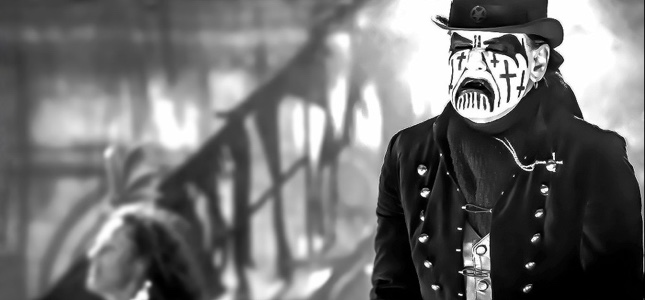
A resurgence of the classic Mercyful Fate sound exerted itself on 1999’s 9, a number referenced “repeatedly in the Satanic Bible”, says the almighty King Diamond in this BraveWords 25 classic from issue #31 / June ’99. Read on as King talks about Satanism, his influence on symphonic black metal and how he was "amazed" when Metallica put together the ultimate Mercyful Medley tribute on Garage Inc.
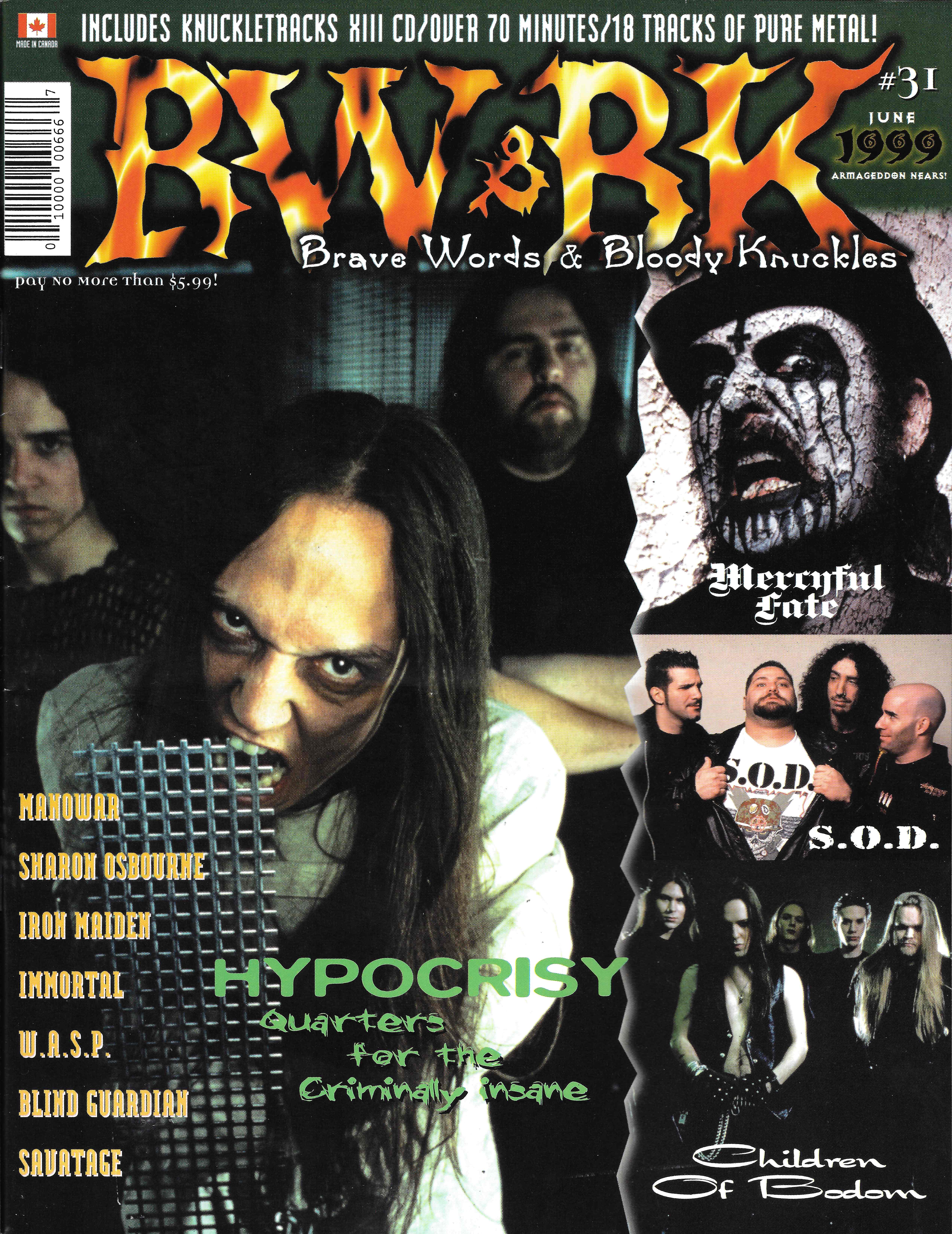
With 9, appropriately their ninth studio album, Mercyful Fate returns to shake foundations of faith and concrete. Heavier and more lyrically vicious then recent records, 9 tempers the snarl of the Beast and the mocking laughter of dark, empty skies with the sweet singing of Angels. But if you remember The Prophecy, Angels are human-hating killers with clever one-liners and flamethrowing fingertips. So who you gonna trust? King Diamond takes a moment before setting off to wreak havoc on a European tour to rekindle the fires of doubt in the minds of the complacent. Witness the words from the altar of the King...
BraveWords: There are a lot of similarities between 9 and the early days of Mercyful Fate. Even down to the cover art.
King: "Yes, this same artist painted Melissa and Don't Break The Oath. Actually, there were two guys who worked at the company at that time, a painter and an artist more into airbrushing, and they were all there from the beginning. If you look closely, the cover of 9 almost blends the two covers together."
BraveWords: Explain the significance of the number 9.
King: "Aside from the obvious, that this is the ninth studio album Mercyful Fate has done, including The Beginning and Return Of The Vampire, nine is a magical number. It's a number that's used repeatedly in the Satanic Bible. Everything you multiply by nine, if you add together the digits, you return to nine. Three times nine is 27, two plus seven is nine, and so on. And nine multiplied by 74 is 666: and if you add six plus six plus six, you get 18, and one plus eight is nine. It also relates to human life, the duration of pregnancy being nine months. There are many, many connections with nine. It's also the number of Satanic philosophy, not 666. That's a number taken from the Bible."
BraveWords: That's always struck me as funny that kids write 666 on walls or in their notebooks, yet that's the Christian's number, not the Satanist's.
King: "And Satan is a Christian god, one that appears in the Bible, and yet many have chosen to throw away that part of their own manufactured religion. And that's not to say that Christianity is bad - I don't think that anything a person believes in is bad, as long as they don't try to force it down my throat. My religious beliefs, my spiritual beliefs, are different from everyone. I've not found what I believe in any book, but I can totally relate to Satanism as a life philosophy as described in Anton LeVey's Bible. It has nothing to do with spirituality, it's more a book of logic. It gets into human instincts, not spirituality. I think most people know that I'm not a Satanist in the Christian sense. I don't believe in their Satan any more than I believe in their God."
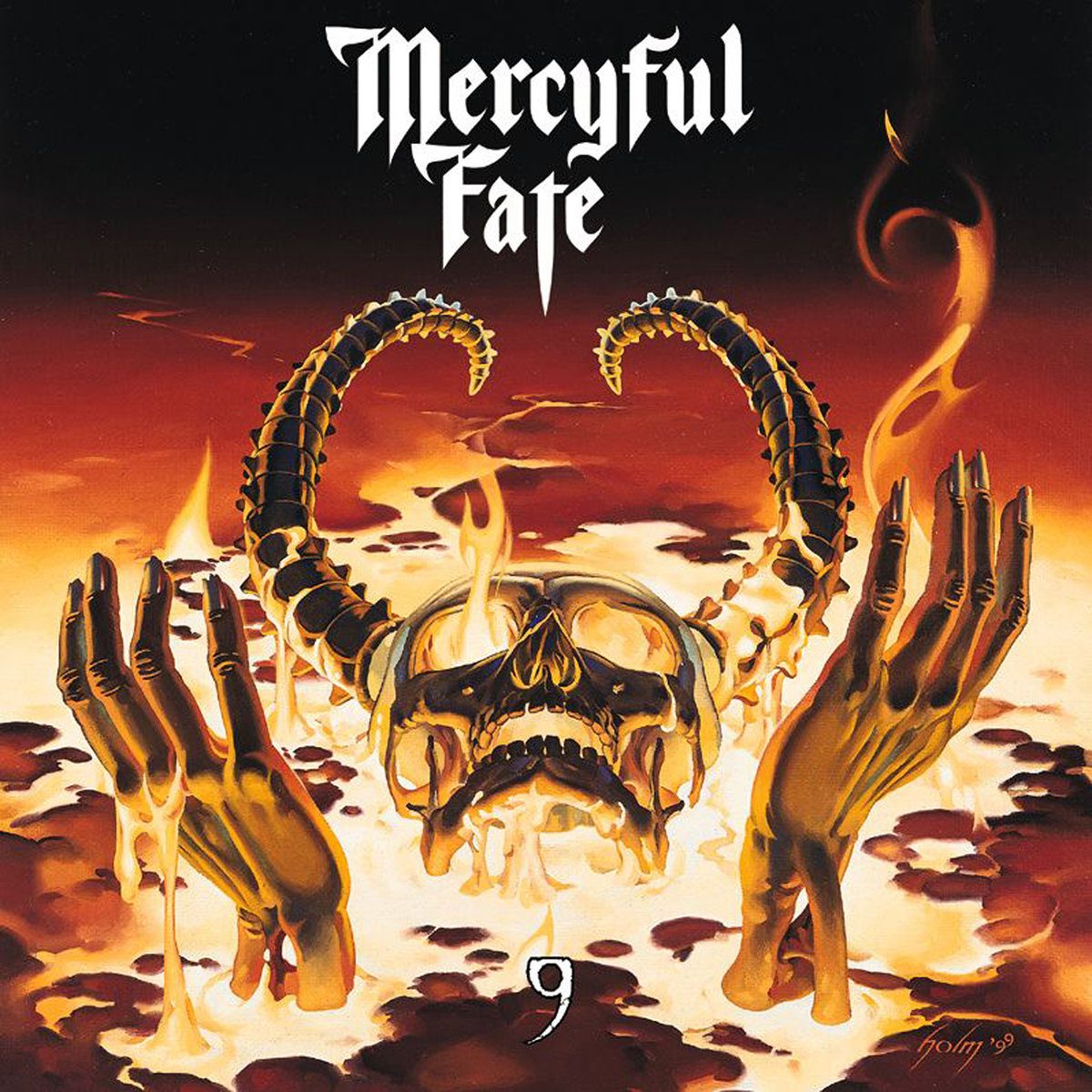
BraveWords: You've been a professed Satanist since the beginning, and I imagine you've taken your fair share of crap from people. Does that still happen to this day?
King: "To an extent, yes, but I think the people and organizations who go after people for their beliefs usually do some checking up and realize there's little for them to gain from going after me. Are we going to debate logic? Are we going to debate personal beliefs? There's no easy way to debate it, and they might just lose their argument. I raise questions about faith because faith is big part of our lives. From our everyday lives to various conflicts around the world, there is faith and religion. The conflicts stem from the lack of respect one group has for the other's beliefs. That's why we have to have laws to get along - otherwise it would be complete chaos because we are all so different, and we see right and wrong differently. A good example is on the King Diamond album, Voodoo. These people move into a house and they discover there is voodoo being practiced nearby. It scares them because they don't know what voodoo is, so they try to get rid of it. The voodoo people have no intention of harming the people who've moved into the house, but now they are being attacked. And now you have a war. Both are trying to do what they think is right, but now there is an unnecessary conflict. If the people who moved into the house had bothered to try to understand what the voodoo practicers were about, they would have found that they were harmless, they simply had different beliefs."
BraveWords: 9 is not a conceptual album, right?
King: "No, they're individual songs. And that goes for all Mercyful Fate albums, with the exception of In the Shadows which has a three-part song. King Diamond is the outlet for concept stories. In the beginning, Mercyful Fate was not that theatrical a band, so King Diamond was created to tell stories. It uses any instrument that'll enhance the feeling. Mercyful Fate is much more direct, there's no need for additional instruments. One thing many people don't realize is that ‘the two classic albums,’ Melissa and Don't Break The Oath, are very different from one another. People group them together without remembering that they've very different. But the thing about 9 that reminds me of those two albums is the attitude. There is much more aggression and attitude in the performance then there has been recently. Without losing the melodic aspect - there's a really good balance on this record. And the lyrics are much more direct this time out. There is nothing held back, just like the early days."
BraveWords: How are the lyrics so much more direct, and why the change?
King: "I wouldn't call it self-censorship because I wouldn't do that, but I think I chose different phrasings and words because people often misinterpret what I say. People relate different things to the same words, so you sometimes try to say the same things with other words. For some reason, if you use words other than the straight, direct words, it weakens the whole. I use the traditional Christian words because they have impact, they make people think. When I say Satan in the lyrics, it doesn't mean I believe in Satan the way the Christian church has created him. I don't. But I am willing to use their words to get my point across. It will instantly make people think about a very specific image. If I said ‘the powers of darkness might give you knowledge without your knowing it, powers you can use for yourself in positive ways,’ that's very different than saying ‘Satan might give you more knowledge than you could ever imagine, and maybe you could use it positively.’”
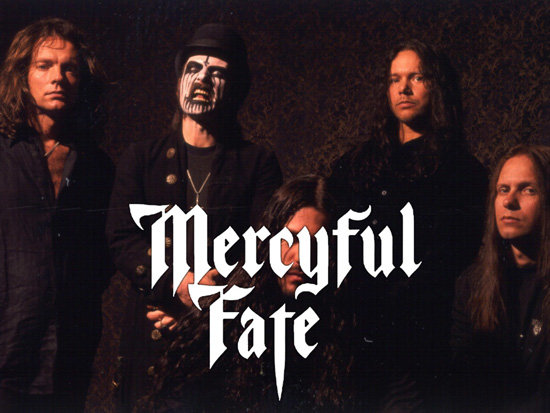
BraveWords: People will hear "Satan" and "positive" and think about what I'm saying. While "dark powers" sounds nice and poetic, but it doesn't have the impact." In a way, it's like using their words as a foot in the door.
King: "Exactly, right. The words do mean something to me, but not the same thing they mean to others. Satan, to me, stands for the powers of the unknown. And that's what it's always meant to me. But I can't use it thinking people will know I'm talking about the powers of the unknown. That would be foolish. So starting now, again, just like in the early days, I'm using the words that will make people think about what I want them to think about. Things I think are important to think about, and then people are left to make up their own minds."
BraveWords: Another difference is the sound of the vocals.
King: "I can really recognize the sound of my own voice again. It was because the words were right. It gave me the inspiration to do more vocal harmonies as well. 'Sold My Soul' has more going on vocally than I've ever done before. And that's more like what we did in the old days as well. But while much of this relates to the early days, the production is very modern and heavy, we used D-tuned guitars on two songs - something we never really did before - and 9 has 'Insane', the fastest song we've ever done."
BraveWords: How would you summarize the difference between Mercyful Fate and your solo concept?
King: "They're different players playing different instruments. Mercyful Fate is very Stratocaster and King Diamond is very B.C. Rich. And King Diamond is more modern and theatrical, whereas Mercyful Fate is more '70s-influenced. Even if both bands played the same song, they would sound very different. And in King Diamond, I use many more voices. Because it's more story-oriented, I use the whole spectrum of different voices I can create. Mercyful Fate's lyrics are about Satanic philosophy and raise a lot of questions about religion, and King Diamond is more horror stories focusing on human actions and reactions."
BraveWords: Tell me a bit about your cover of “The Ripper” on the Tribute to Judas Priest.
King: "Mercyful Fate was very inspired by Judas Priest, so this was a way of paying tribute. That was a perfect song for Mercyful Fate. Each instrument, the vocals, and the production really recreated the sights and smells of the alleyways being stalked by the Ripper, down to the bit of swagger in his walk. I had a really good feeling with that song. And it's very rare that I can get into the mood of someone else's lyrics. In the very early days, I was in a three-piece that Hank (Sherman, lead guitarist) and I helped do a demo. He had a song about being a truck driver that he wanted me to sing, and I was like, 'Are you serious?!?' He said, 'What? I don't think it's that bad!' I felt so stupid singing that song. I couldn't relate to it."
BraveWords: Speaking of tributes, how'd you feel about Metallica's medley of your songs on Garage Inc. called “Mercyful Fate”?
King: "That was so well done, I was amazed. You can tell they really dug into the songs. They stayed authentic to the tempo and melodies, they just used a lower harmony in those places where the vocals get too high. Kirk didn't copy the solos, but he got the feel. It made me feel really good to hear someone get in that close to the original, yet it still sounds like Metallica."
BraveWords: And you're about to go on tour with them this summer.
King: "Yes, for two months we'll be touring all over Europe, sometimes with Metallica and Monster Magnet, sometimes on our own. Mostly big festivals, but we have quite a few club dates as well."
BraveWords: You mentioned the '70s influence of Mercyful Fate - who specifically?
King: "I collect albums from that era, so when people ask me what new bands I listen to, I really don't know what to say. I always get the new Metallica and Megadeth albums, but other than that, probably one of my favorites is Uriah Heep. Mercyful Fate doesn't sound like them, but David Byron can hit amazingly high notes, and do it with ease. Just like Halford. And like Ozzy has a very unique sound to his voice, Byron had personality."
BraveWords: But no metal contemporaries strike you, even though much of the newer, more symphonic black metal can be seen as an extension of your legacy?
King: "I know of the bands, and I know many of them have said kind words about us: Dimmu Borgir, Cradle Of Filth, Emperor, and more traditional metal bands like HammerFall. And while I'm very honored, I just really haven't listened to many of them. I'll probably run into some of them at the festivals this summer. You could say that it's good and bad. When I have a little time and listen to albums, I listen to those that I collect as a hobby. I'm not really on top of what's going on in the music scene today."
BraveWords: In a way, perhaps it keeps you pure to your vision.
King: "That's the good part of it, I think. Perhaps it would be like that anyway because we always do things straight from the heart. Then again, straight from the heart is still influenced by what's around you. So maybe if you listen to a lot of bands around you, you would be influenced in writing songs in that direction."
BraveWords: One last topic: I'm sorry to bring politics into a philosophical discussion, but you've mentioned using words to create questions - unrest, basically - but you've also mentioned the need for laws so individuals can coexist. What's your take on young people taking ideas "too far," such as what happened in Colorado [where "Goths" killed "jocks"]?
King: "The first two thing that always come to mind when things like this happen are: were the people who committed these crimes already somewhat insane, yet it hadn't been detected, and the other is the parents: where were they? On the first, some people are simply born wrong. They're sick. They were born that way. Perhaps it wasn't discovered until they were 15, 30, or 60, but that's just when it showed itself. They were always like that, they were simply not caught performing an act that's considered abnormal. But after the fact, when you hear them talking, you see that they've always had a problem, they have a sick mind. As for the parents, I wonder where they were that they didn't see the problem before it was too late. Where is the communication, the relationship, understanding and support? So many parents are too busy with their work or their own lives, and the kids are simply forbidden to go see their friends because they're "bad" or they listen to the wrong music. But if the kid reacts by shooting up in an alley instead of meeting up at their friend's house and listening to records, which is worse?"
BraveWords: What do you propose?
King: "Try to understand what it is your kid is doing and why, instead of blindly forbidding it. It's a parent's obligation to be there for their kids, not just regulate their lives without understanding why it's so important. And honestly, how many times has this sort of thing happened in Jesus' name? ‘Jesus spoke to me so I had to kill the wicked.’ It's rare that they report it, but some brave journalist writes about it no matter what the consequences, and when it's out in the open, the church claims Satan must've gotten a hold of him, claiming to be Jesus. It was what they preached that made him do it, but he was insane because he was hearing voices to begin with. We all agree on that. So stop blaming it on music and movies, because you're not willing to accept that religion is to blame as well. These people are sick in the head, they just aren't caught in time. Not everyone is sane. That's a misconception. Another misconception is that kids are stupid. If you see some of the footage of debates and discussions, kids are much deeper and more knowledgeable than they're given credit for. They're mature on a level that many parents just don't understand, mostly because they aren't closely involved in their kids' lives. Why do you think a kid wears a shirt with a skull on it? Because it's cool. Because he's expressing himself. Another kid wears a Polo shirt, and maybe he's miserable because he wants to wear a shirt with a skull. Maybe not. Maybe the Polo shirt is cool to him and he's expressing himself. There are many, many scenarios and everyone's different. Everyone's different and there is no right and wrong. The sooner people realize that there'll be a lot less conflicts.”


